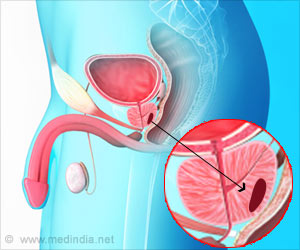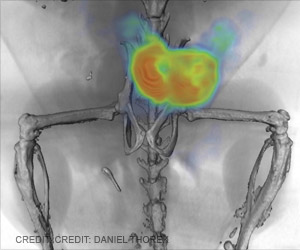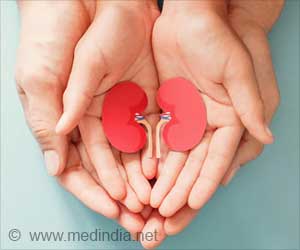Two new drug candidates Targapremir-18a, Targapremir-210a are identified to halt prostate and breast cancer growth.

- Prostate cancer is a common cancer among men, while breast cancer is common among women.
- A new study finds the discovery of two drug candidates namely Targapremir-18a compound and Targapremir-210a compound.
- The drug compounds were found to halt the growth of prostate and breast cancer.
Professor Matthew Disney, senior author of both the studies, said, "This is like designing a scalpel to precisely seek out and destroy a cancer--but with a pill and without surgery."
New Tool to Fight Prostate Cancer
Prostate cancer is a common cancer that affects men. According to the American Cancer Society, around 161,360 cases of prostate cancer may be diagnosed in the United States in 2017. One out of seven men is diagnosed with prostate cancer in their lifetime.
Ribonucleic acids (RNAs) are molecules that are capable of translating the genetic code into proteins. Any defects in the RNA can result in cancer, amyotrophic lateral sclerosis (ALS), myotonic dystrophy and other diseases.
In the study published in the ACS journal, DNA sequencing can help to evaluate thousands of small molecules for potential drug candidates. The research team are on the lookout for molecules that may bind precisely with defective RNAs, like how the key fits into the lock.
The Scientists are now aware of a mature microRNA-18a which would inhibit a protein that suppresses cancer. When this RNA molecule is overexpressed, cancers are capable of growing.
The research team has tested the Targapremir-18a compound and found it to be capable of triggering cell death in prostate cancer by targeting the microRNA-18a.
Disney, said, "Since microRNA-18a is overexpressed in cancer cells and helps to maintain them as cancerous, application of Targapremir-18a to cancer cells causes them to kill themselves."
The precise binding of Targapremir-18a to microRNA-18a may show that the strategy would likely be able to kill prostate cancer cells without causing broader side effects that are seen with other cancer therapies.
Sai Velagapudi, a research associate in the Disney lab, said, "We could apply the strategy used in this study to quickly identify and design small molecule drugs for other RNA-associated diseases.”
Similar Strategy to Test Triple Negative Breast Cancer
Triple negative breast cancer is hard to treat and lacks the receptor called estrogen receptors when targeted with other cancer drugs.
It is more common among women between the age of 40 or 50. African-American women are most commonly affected with triple-negative breast cancer. One out of ten breast cancers is found to be triple-negative.
The research team has used a same screening strategy as used in prostate cancer, and tested a drug candidate for triple negative breast cancer, this was reported in the journal of the American Chemical Society.
The research team used a RNA molecule called microRNA-210, that is overexpressed in solid breast cancer tumors, and also tested Targapremir-210 compound in mouse models of triple negative breast cancer. The therapy was found to significantly slow down tumor growth.
A single dose of the therapy was found to decrease the tumor size by 60% over a three week-period.
The research team also analyzed the small tumors and discovered that they expressed less microRNA-210 when compared with untreated tumors.
Targapremir-210 compound was found to work by reversing a circuit which may make the cells to “survive at all costs” and become cancerous.
The cells are capable of regaining their normal function and will not grow with microRNA-210 in check.
Matthew G. Costales, study first author TSRI Graduate Student, said, "We believe Targapremir-210 can provide a potentially more precise, targeted therapy that would not harm healthy cells."
In the future, scientists are also planning to further develop molecule-screening strategy to a platform where you can test molecules against any type of RNA defect-related disease.
References
- Sai Pradeep Velagapudi, Yiling Luo, Tuan Tran, Hafeez S. Haniff, Yoshio Nakai, Mohammad Fallahi, Gustavo J. Martinez, Jessica L. Childs-Disney, Matthew D. Disney. Defining RNA–Small Molecule Affinity Landscapes Enables Design of a Small Molecule Inhibitor of an Oncogenic Noncoding RNA. ACS Central Science, 2017; DOI: 10.1021/acscentsci.7b00009
- About Prostate Cancer - (https://www.cancer.org/cancer/prostate-cancer/about.html)
- Triple-Negative Breast Cancer - (http://www.breastcancer.org/symptoms/diagnosis/trip_neg)
Source-Medindia














